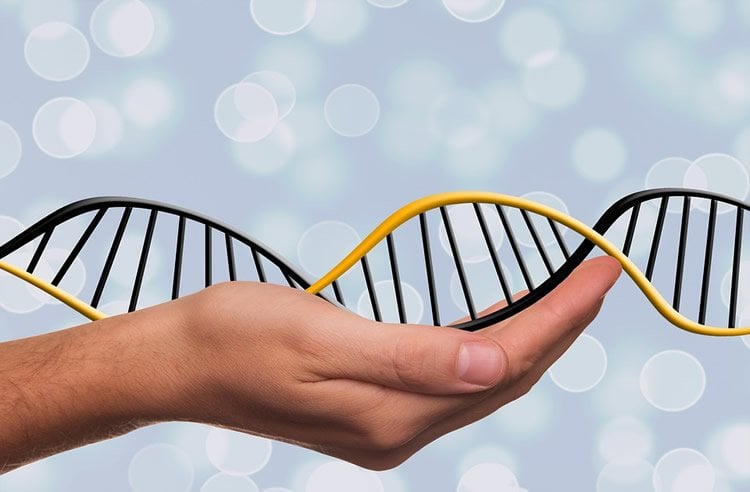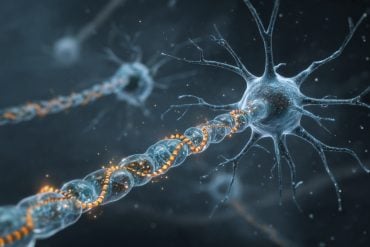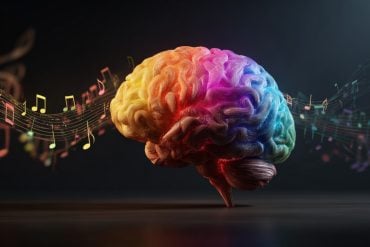Summary: Researchers have identified two genetic variants for meaning in life and six genetic variants for happiness.
Source: Vrije University Amsterdam.
For the first time, locations on the human genome have been identified that can explain differences in meaning in life between individuals. This is the result of research conducted in over 220,000 individuals by Professor Meike Bartels and PhD student Bart Baselmans from the Vrije Universiteit Amsterdam. The researchers identified two genetic variants for meaning in life and six genetic variants for happiness. The results were published this week in the scientific journal Scientific Reports.
The fact that genetic variants for a meaning in life have been found indicates that everyone is different and that differences between people in complex processes such as a meaning in life are in part due to biological differences. VU professor Meike Bartels: “We live in a society where everyone is expected to thrive, achieve the highest, and live a meaningful life. If we have a better idea of the causes of differences between people, we can use that information to help people who feel less happy or struggle with the meaning of life. We also find that there are environmental factors that are important for happiness, but not for meaning and vice versa. In the future we would like to identify which environmental factors are responsible for this discrepancy.”
Individual differences
Previous research has shown that individual differences in happiness and well-being can partly be attributed to genetic differences between people. Furthermore, the first genetic variants for happiness were found a few years ago. Baselmans: “These results show that genetic differences between people not only play a role in differences in happiness, but also in differences for in meaning in life. By a meaning in life, we mean the search for meaning or purpose of life.”

220 thousand DNA samples
All people who participated in the study are part of the UK Biobank and have donated a DNA sample and completed a questionnaire. Bartels: “We then tested which genetic variants in the DNA lead to differences in meaning in life.” The genetic variants are mainly expressed in the central nervous system, showing the involvement of different brain areas.
Source: Meike Bartels – Vrije University Amsterdam
Publisher: Organized by NeuroscienceNews.com.
Image Source: NeuroscienceNews.com image is in the public domain.
Original Research: Open access research for “A genetic perspective on the relationship between eudaimonic –and hedonic well-being” by B. M. L. Baselmans & M. Bartels in Scientific Reports. Published October 2 2018.
doi:10.1038/s41598-018-32638-1
[cbtabs][cbtab title=”MLA”]Vrije University Amsterdam”Discovery of First Genetic Variants Associated with Meaning of Life.” NeuroscienceNews. NeuroscienceNews, 3 October 2018.
<https://neurosciencenews.com/life-genetic-variants-9950/>.[/cbtab][cbtab title=”APA”]Vrije University Amsterdam(2018, October 3). Discovery of First Genetic Variants Associated with Meaning of Life. NeuroscienceNews. Retrieved October 3, 2018 from https://neurosciencenews.com/life-genetic-variants-9950/[/cbtab][cbtab title=”Chicago”]Vrije University Amsterdam”Discovery of First Genetic Variants Associated with Meaning of Life.” https://neurosciencenews.com/life-genetic-variants-9950/ (accessed October 3, 2018).[/cbtab][/cbtabs]
Abstract
A genetic perspective on the relationship between eudaimonic –and hedonic well-being
Whether hedonism or eudaimonia are two distinguishable forms of well-being is a topic of ongoing debate. To shed light on the relation between the two, large-scale available molecular genetic data were leveraged to gain more insight into the genetic architecture of the overlap between hedonic and eudaimonic well-being. Hence, we conducted the first genome-wide association studies (GWAS) of eudaimonic well-being (N = ~108 K) and linked it to a GWAS of hedonic well-being (N = ~222 K). We identified the first two genome-wide significant independent loci for eudaimonic well-being and six independent loci for hedonic well-being. Joint analyses revealed a moderate phenotypic correlation (r = 0.53) and a high genetic correlation (rg = 0.78) between eudaimonic and hedonic well-being. This indicates that the genetic etiology of hedonic and eudaimonic well-being is substantially shared, with divergent (environmental) factors contributing to their phenotypic divergence. Loci regulating expression showed significant enrichment in the brain cortex, brain cerebellum, frontal cortex, as well as the cerebellar hemisphere for eudaimonic well-being. No significant enrichment for hedonic well-being is observed, although brain tissues were top ranked. Genetic correlations patterns with a range of positive and negative related phenotypes were largely similar for hedonic –and eudaimonic well-being. Our results reveal a large overlap between the genes that influence hedonism and the genes that influence eudaimonia.







